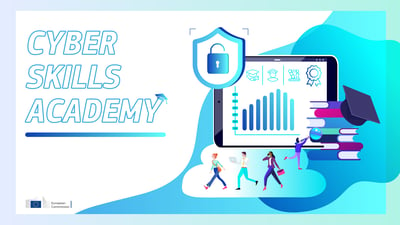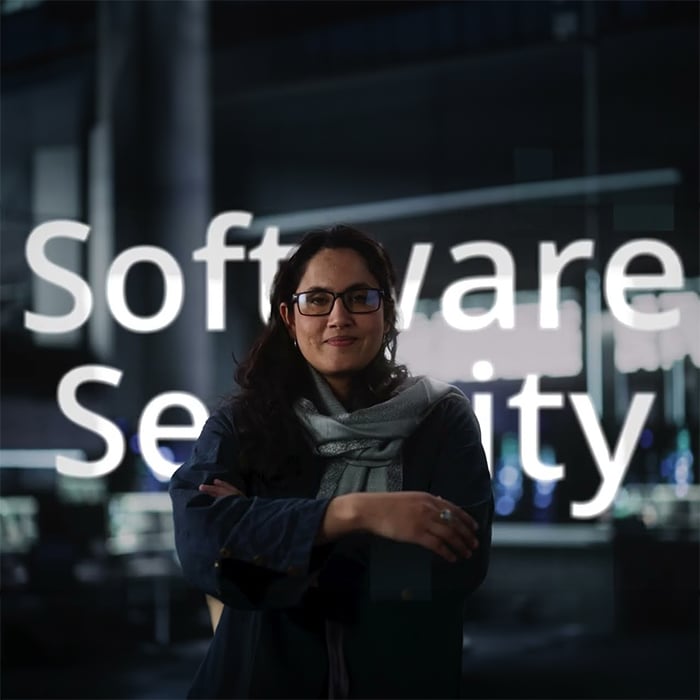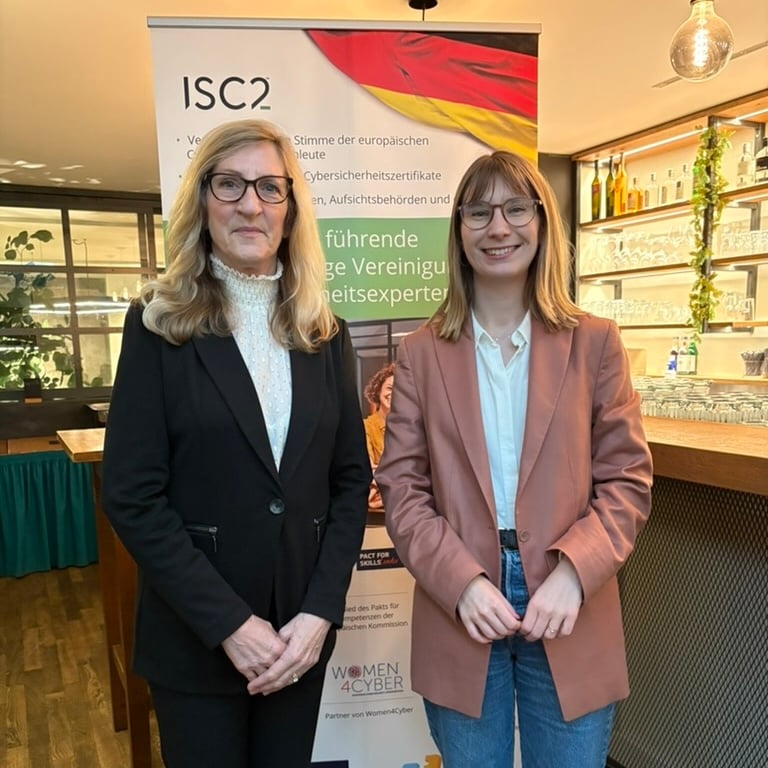In April 2023,
ISC2
was the first organization to make a pledge in support of the
EU Cybersecurity Skills Academy, under the 'Digital Skills for Labour Force' pillar. To help build
the urgent need for skilled cybersecurity professionals in the EU,
ISC2 pledged to provide 20,000 individuals in the EU Member States
with free access to its
Certified in Cybersecurity (CC)
training program and exam. 
ISC2's initiative has achieved a remarkable milestone, with more than 24,000 individuals from across the EU enrolling in the CC program in just 12 months. This surpasses the initial target registrations by almost 120% and is six months ahead of schedule. The 18-month pledge period concludes in October 2024.
This pledge, as part of ISC2’s wider One Million Certified in Cybersecurity initiative, is helping to address the critical cybersecurity workforce and skills gaps by attracting new entrants to the profession from all backgrounds, including recent graduates, career changers and IT professionals, and provides a route into cybersecurity careers through certification.
ISC2’s 2023 Workforce Study estimates the workforce gap for cybersecurity professionals in the EU stands at 274,000, with a 29% expansion of the skills base required to close the gap. Over two-thirds of EU respondents state their organizations have a shortage of cybersecurity staff to prevent and troubleshoot cybersecurity issues.
Diversifying the Workforce
The current EU workforce gap emphasises the need for a more diverse cybersecurity workforce. The pledge has successfully attracted a diverse population of candidates, including:
- Registrations across all 27 EU Member States, with the highest proportion of women in Romania, Poland and Ireland.
- Registrations across a range of ethnicities, with non-white ethnic groups accounting for 29% of enrolments.
- Total female participation across the population was 18%, however, between ages 18-24 (19%), 25-34 (25%) and 35-44 (20%) female participation is above the average rate.
- Highest uptake in the 25-34 age group, accounting for 37.1% of registrations.
- 51% of registrants were aged under 35, with a greater proportion of women in this age group.
Cyber Pathways
Obtaining the CC certification demonstrates holders have the foundational knowledge, skills and abilities to pursue an entry- or junior-level cybersecurity role. It provides coverage of key skills and knowledge for many roles within the European Cybersecurity Skills Framework (ECSF), establishing a robust foundation for entering the workforce.
Highlighting the value of entry-level certifications, ISC2's research found they are a highly regarded form of cybersecurity qualification, favored over a bachelor's degree, 66% to 34%, when considering entry-level candidates.
- 80% of EU respondents agree that alternative pathways into cybersecurity is good for the industry;
- 86% are willing to hire entry level employees; and,
- 59% are changing their hiring expectations to accept more applications from candidates with non-cybersecurity backgrounds.
Through equipping individuals in the EU with essential cybersecurity skills to navigate the evolving threat landscape, ISC2 is aligning with the EU’s ambition for a skilled, technologically advanced, and sustainable economy.

“Cybersecurity is a cornerstone of the EU’s digital economy,” said Ed Parsons, VP of Global Markets and Member Relations, ISC2. “Through our successful pledge with the EU Cyber Skills Academy, we are growing the pipeline of skilled candidates to build the region's cyber resilience and competitiveness in the international cybersecurity market. Together, through investment in training, certification and
DEI initiatives, we can create new, non-traditional pathways into careers and strengthen the cyber workforce throughout Europe.”
Reaching Underrepresented Groups
ISC2 has partnered with various EU-based organizations to ensure the program is accessible to individuals from a broad range of backgrounds. Through its partnership with the Algebra University College in Croatia, ISC2 is delivering the CC program to students. ISC2 has also collaborated with the non-profit ReDI School of Digital Integration in Germany, helping to upskill individuals from migrant communities, and with the Women4Cyber Foundation in Belgium to encourage female participation in cybersecurity.


